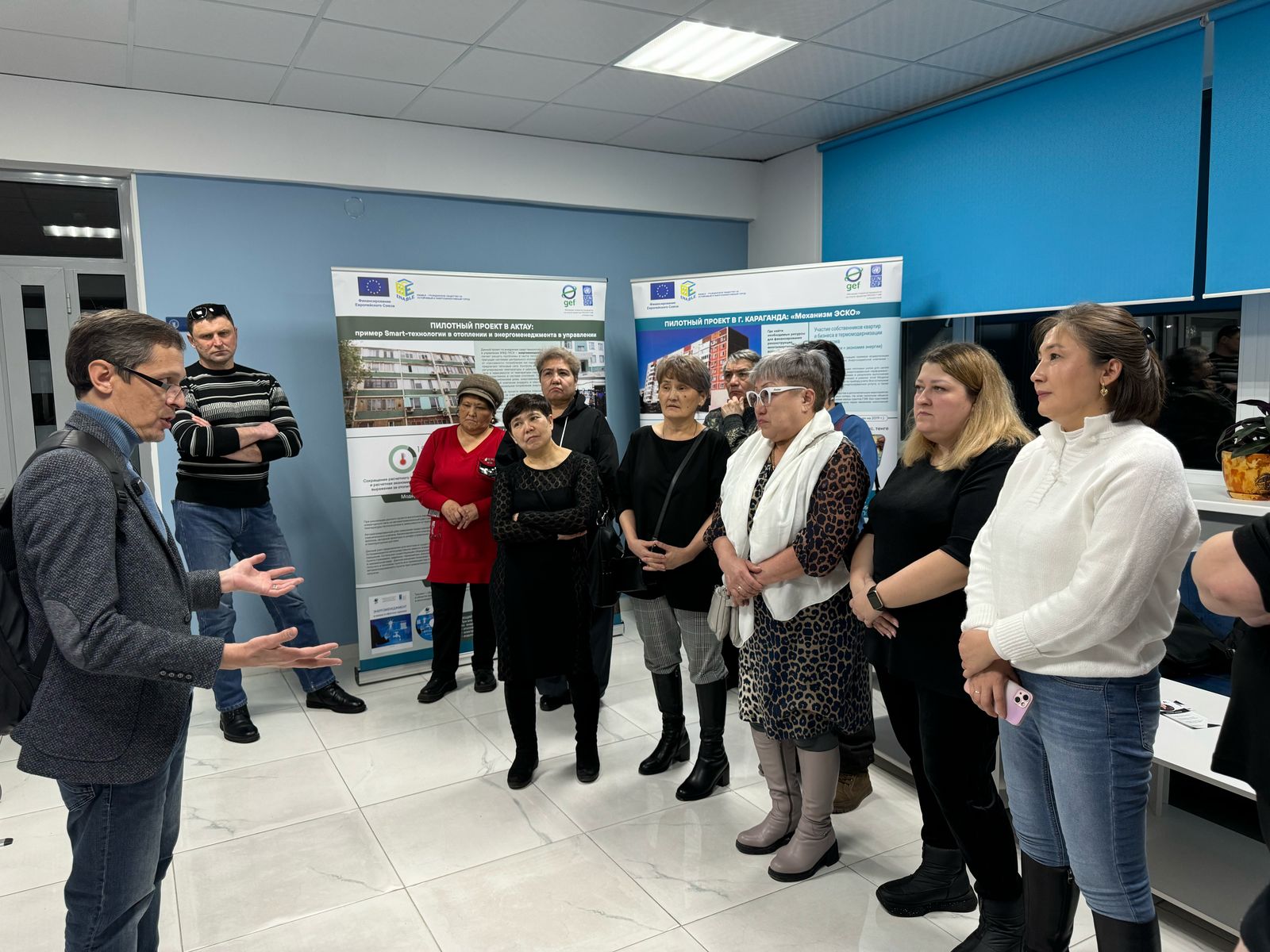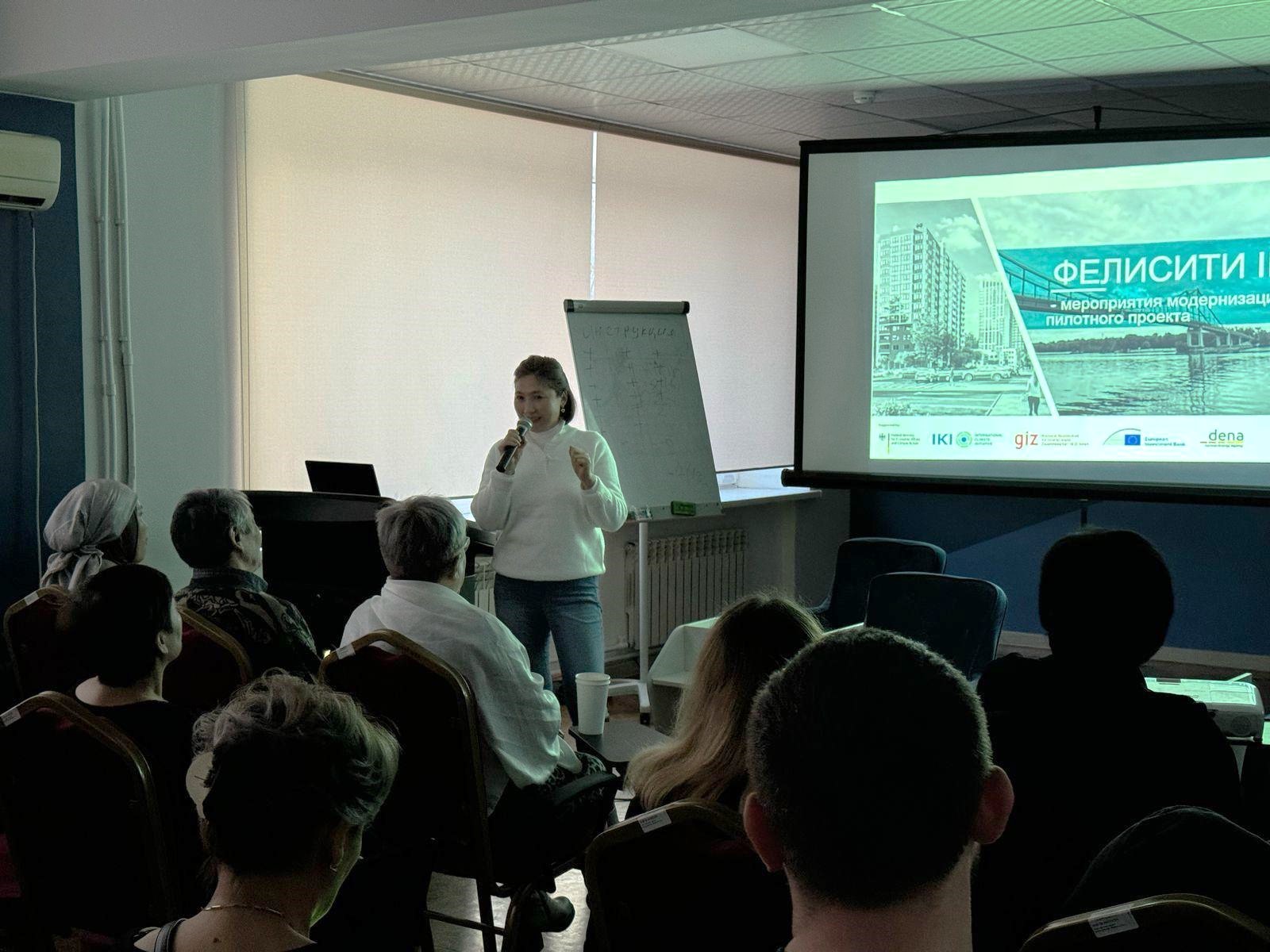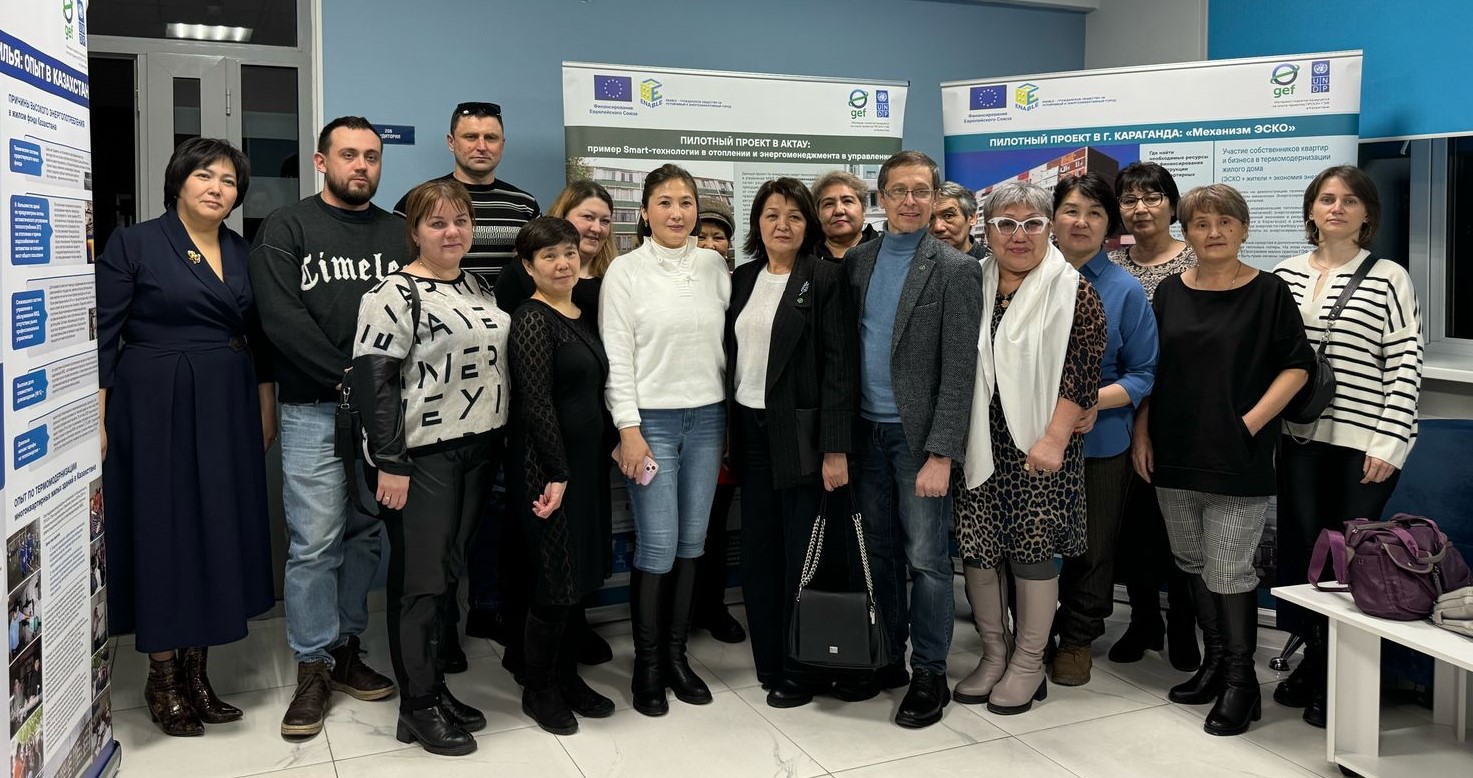News
News & Events
20 February 2025
Stakeholder Dialogue: First Meetings on Energy Modernisation of Residential Buildings in Kazakhstan
On 14-15 February 2025, two initial events took place in Kokshetau, Kazakhstan, in the framework of the project "Maintaining Stakeholder Dialogue for Pilot Projects for Energy Retrofit of Residential Buildings" implemented by the German NGO "Initiative for Housing in Eastern Europe (IWO)", with the financial support of the German Society for International Cooperation (GIZ).
The project aims to involve tenants in the process of energy retrofitting of their buildings and to develop a universal mechanism of interaction with homeowners for scalable retrofit programmes. Particular attention is paid to the creation of institutions that will enable the future scaling up of energy modernisation of multi-apartment buildings at the national level.
On the first day, a meeting was held with representatives of housing management companies in Kokshetau. During the event, the participants discussed the international and national context of energy efficiency in the residential sector, reviewed the implemented pilot projects in Kazakhstan and their results. Legislative norms, technical standards, as well as organisational and financial aspects of implementing energy saving solutions were discussed in detail.
Alexander Belyy, Executive Director of KazGBC, presented successful examples of implemented pilot projects in other cities of Kazakhstan, and also spoke about their financing mechanisms. Larisa Schreckenbach, IWO Project Manager, explained the algorithm of organising energy modernisation of multi-apartment buildings and key principles of interaction with tenants. Gulzhan Tleukenova, Head of the Energy Efficient Buildings Group at the German Energy Agency (dena), shared international experience in implementing energy saving technologies in residential buildings.

Photo 1: Aleksandr Belyi, Executive Director of KazGBC - Copyright: Aleksandr Belyi
It was noted that successful modernisation requires not only technical solutions, but also a clear mechanism of interaction between residents, city authorities and investors.
Larissa Schreckenbach: "Energy modernisation of residential buildings is not only about technical retrofitting of houses, but also about building a dialogue between residents, housing management companies and local authorities. The more we talk about the benefits of energy efficiency, the sooner this process will become the norm rather than the exception."
On the second day, a meeting was held with homeowners of the pilot building in Kokshetau. The main purpose of the meeting was to explain to the residents all the advantages of energy modernisation and discuss the key stages of its implementation. Residents learnt what measures allow to reduce energy consumption costs, as well as what additional benefits the modernisation of housing brings.
The meeting participants were presented with the main approaches to energy saving and explained the economic benefits of modernisation. Aigul Arinova, Advisor to the Akimat of Kokshetau city, spoke about support mechanisms for energy modernisation at the municipal level and possible sources of financing for mousing management companies. Gulzhan Tleukenova presented variants of energy concepts for buildings, their impact on the comfort of residents and the potential to reduce utility bills.

Photo 2: Gulzan Tleukenova, Head of the Energy Efficient Buildings Group at dena. - Copyright: Aleksandr Belyi
One of the conclusions was a joint understanding of the need for a broad information campaign among homeowners, as their awareness and involvement are key success factors for such projects. A mini-sociological survey among residents was also announced during the meeting to better understand their needs, expectations and possible barriers to the implementation of the planned energy modernisation.
Alexander Belyy: "The main challenge is not only financing but also changing people's mindset. That is why we are focusing on creating transparent mechanisms of interaction with tenants so that they understand and support the modernisation processes."
It is important to note that energy modernisation of multi-apartment buildings plays a key role in improving living comfort, reducing utility costs and reducing carbon footprint. The project in Kokshetau is a vital step towards creating effective mechanisms of interaction with homeowners and city administrations for further scaling of such initiatives.

Photo 3: Participants of the meeting. - Copyright: Aleksandr Belyi.
It is expected that based on the results of this pilot project, a methodological framework will be prepared to extend successful practices and adapt them to existing local legislative requirements. In the future it is planned to organise similar events with the participation of experts from the Baltic countries that have successfully gone through energy modernisation of their housing stock. The exchange of such experience should facilitate the establishment of the necessary processes in Kazakhstan on its way to systematic retrofitting of multi-family housing.
Aigul Arinova: "The implementation of pilot projects allows us to see in practice which solutions work best, and which interaction mechanisms can be applied nationwide. This is an significant step towards a future where energy efficiency becomes a standard for the housing stock."
For further information and questions from the media, please contact the project contact person: Larissa Schreckenbach, IWO Project Manager schreckenbach@iwoev.org